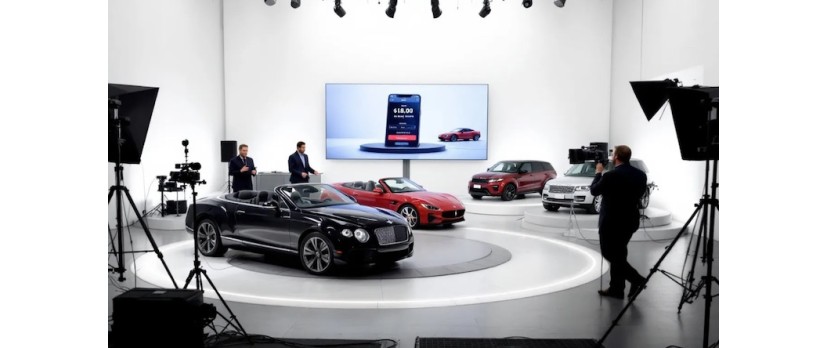Buying a car once meant walking into a dealership with a brochure in one hand and hesitation in the other. Now the story unfolds differently. Car buyers scroll listings on their phones at lunch. They compare prices while waiting in line. They find their next car without leaving home.
eCommerce auto buying is no longer the exception. It's the expectation. What once required time off and travel now happens in moments. Car buyers have shifted from showroom visitors to digital decision-makers.
In this new era, one platform leads the way for used and salvage vehicles sca.auction. With real-time bidding, clean vehicle history reports, and national inventory, it redefines access and control for buyers.
Why Are Consumers Choosing Online Auto Auctions
Convenience alone isn't the answer. The shift toward online auto platforms runs deeper. It's about control.
Traditional dealerships limit options. Inventory is finite. Sales pressure is intense. Hidden fees and bloated costs dominate discussions. Meanwhile, ecommerce offers transparency. It’s a digital handshake instead of a showroom pitch.
Buyers expect:
Wider inventory from multiple states
Lower fees compared to local dealers
Instant access to car data and reports
Mobile-first experiences
There’s a shift in how customers define trust. It’s not about who wears a tie. It’s about who shows the price breakdown clearly. Platforms that simplify the purchase process gain market share daily.
From Trade In to New Ride: A Digital Transition
Consider a real-world example. A small business owner wants to trade in their van. They get an offer of 3,000 for the trade in. Online, the same vehicle is worth 5,200 in auction resale data.
That gap becomes a tipping point.
The rise of ecommerce automobile buying helps consumers sidestep dealership games. No backroom negotiations. No vague offers. Only raw data.
Every step happens online:
Search by vehicle type or VIN
Compare features side by side
Access vehicle history reports instantly
Check real-time bids
Finalize purchase remotely
That’s not just commerce. That’s transformation.
The Business Case: Why Dealers Embrace eCommerce Too
Dealers once feared online auctions would cannibalize their showroom sales. Now they use these same platforms to build inventory smarter.
Why?
Access to nationwide lots
Opportunity to buy at lower prices
Faster turnaround
No middleman fees
More granular control over costs
They leverage platforms to find trade in vehicles, calculate expected savings, and identify the right ride for budget-conscious customers.
Compare this with old-school dealer-to-dealer transfers. Those were slow, limited by region, and bloated by internal markup.
Now a dealership in Ohio can buy a salvaged Ford from Texas, restore it with budget parts, and sell it within weeks.
Table: Traditional Dealers Compared to eCommerce Platforms
Consumers now favor platforms where trust is built through automation not persuasion.
Budget, Features, and Data: What Buyers Actually Value
Price still matters. But now it shares the stage with features and clarity.
Buyers care about:
Whether the car is clean or branded title
Whether mileage is confirmed
Whether past damage is disclosed
If ecommerce platforms protect them from bad decisions, that builds connection. That earns repeat customers.
People don’t just want to buy a car. They want to feel safe doing so.
And yes, they want that next car to fit their lifestyle, not just their budget.
Lists That Drive Decisions
Most wanted ecommerce car buying features:
Mobile VIN lookup
Live auction timers
Visual damage photos
Clickable condition reports
Estimated total cost including fees
Business tools expected by dealers:
Inventory sync
Condition analysis by brand
Title verification
Pricing analysis
Transport quotes
Platforms that deliver both earn trust on both sides of the wheel.
Making the Connection Between Buyers and Brands
When buyers shop online, they’re not just looking for a car. They’re searching for alignment. Between need and price. Between features and performance. Between trust and transaction.
eCommerce car buying allows that connection to form without the noise of in-person pressure. Consumers explore brands they’d never find on a local lot. They run instant VIN checks. They analyze costs down to the penny. They customize their filters until the perfect match surfaces.
A platform becomes more than a site. It becomes a bridge.
When dealers and customers meet on equal footing, commerce flows naturally.
The Role of Information in Building Trust
Every click leaves a trail. Every visit adds a layer to the data puzzle.
Smart eCommerce sites use this information not just to sell, but to protect. Recommending similar vehicles. Flagging salvage titles. Highlighting unusual price drops. Offering buyer education.
This is content with purpose.
Even brands like CarMax now integrate detailed condition breakdowns with side-by-side comparison tools. It’s no longer enough to show a photo and a VIN. The market demands full transparency.
Buyers don’t want a guess. They want analysis. They want clarity. They want time saved.
Why Buyers Are Willing to Click From Home
What makes someone buy a car online?
It’s not impulse. It’s confidence.
They want to find a vehicle without stepping into a glass box filled with sales desks. They want that ride to meet their goals whether it's budget, safety, or horsepower.
They want to skip the drive to the dealership entirely. No coffee machines. No price haggles. Just clean data. Clear choices.
That’s why the ecommerce platform model works. It answers a psychological need.
Click. Compare. Checkout.
The Future of Auto Commerce Looks Digital
eCommerce car buying will continue growing. That’s not a prediction. That’s the expected trajectory.
More dealers will shift to hybrid models. More websites will integrate financing and insurance. More consumers will expect full transparency before they even click.
The business is evolving.
No more flyers. No more see store for details. Just structured inventory, accessible content, and better savings.
Trust no longer starts with a handshake. It starts with the VIN.


Login and write down your comment.
Login my OpenCart Account